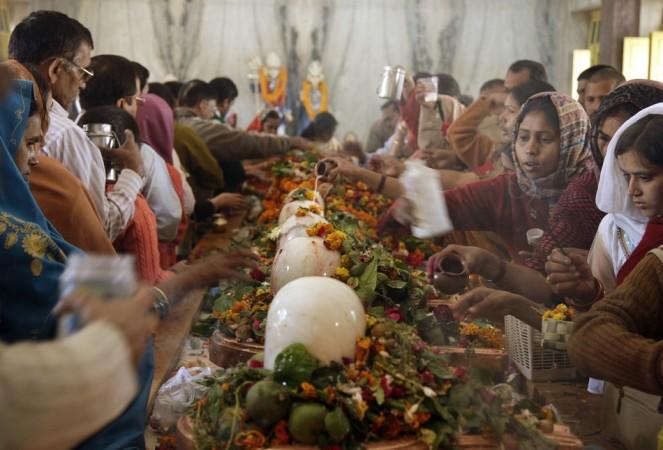
Maha Shivaratri, or the night of Lord Shiva, is celebrated in India and in some parts of Nepal with much fervor every year on the 14th night of the full moon. But this year the date of the celebration has left devotees confused.
The Rashtriya Panchang, issued by the Central government, says that the festival will be observed on February 14, coinciding with Valentine's Day. However, the auspicious time to observe this festival is on February 13 night and it will extend on the next day.
"Places including West Bengal, Bihar, Odisha, Chhattisgarh, Assam, Madhya Pradesh, Lucknow, Varanasi, Kanpur, Allahabad will celebrate on February 14, i.e. on Wednesday. However, in Delhi, Himachal, Haryana, Punjab, Uttarakhand, Jammu & Kashmir, Gujarat, Maharashtra, Karnataka, Andhra Pradesh, Goa, Kerala, Rajasthan, Tamil Nadu, Ujjain, Agra, Haridwar, Mathura, people can celebrate on February 13. As we follow the Jagannath culture and it is there on the annual calendar, February 14th is the ideal date," astrologer Pramod Satapathy told NewsX.
According to Hindu calendar Drik Panchang, Shiva aarti can be done anytime between the four prahar (approximately three hours long time period). The first prahar will begin at 6:33 pm on February 13 and it will last till 9:43 pm, second prahar will start at 9:43 pm and will last till 0:52 am on February 14 morning, the third prahar will begin at 0:52 am and it will last till 4:01 am and the fourth prahar will start at 4:01 am and end at 7:11 am.
Why is Maha Shivaratri celebrated?
The auspicious festival is celebrated to worship Shiva, the Hindu God of destruction. According to Hindu mythology, the day is celebrated because on this day Lord Shiva married Goddess Parvati. This is one of the reasons unmarried girls and women fast and pray to get a husband like Lord Shiva.
Another popular belief is that Lord Shiva drank poison to save the universe during the churning of the ocean known as Samudra Manthan.
Check out five songs and bhajans to worship Lord Shiva
Shiv Tandav Stotram – Shankar Mahadevan
Shiva Suvarnamala Stuti
Shiv Shankar Ko Jisne Pooja – Gulshan Kumar
Jaago Jaago Hey Bhole Baba – Hariharan and Anuradha Paudwal
Maha Shivaratri Parv Hai Paawan – Anuradha Paudwal














